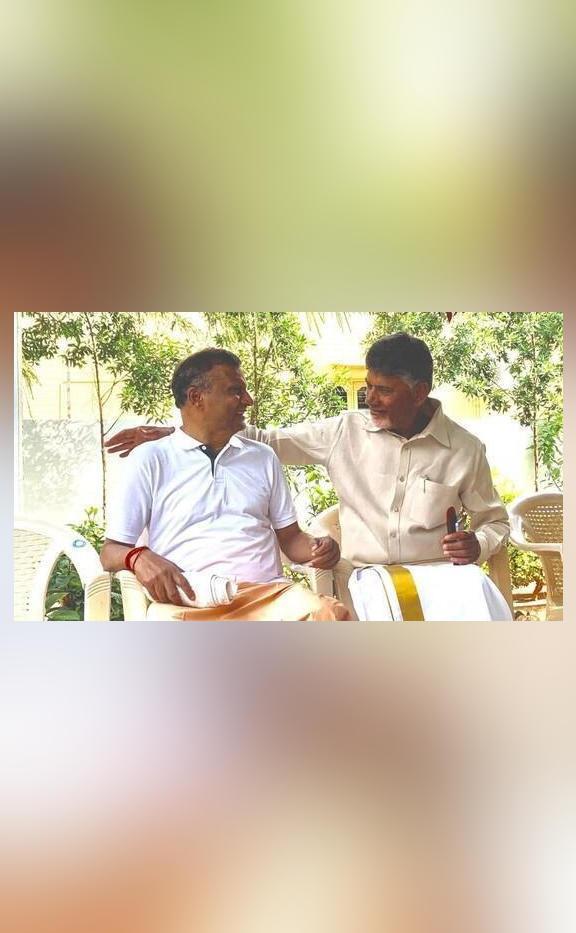 |
|
The passing of N Ramamurthy Naidu, younger brother of former Andhra Pradesh Chief Minister and TDP leader N Chandrababu Naidu, marks a significant moment in the political landscape of Andhra Pradesh. His death at the age of 72, following a massive heart attack, has left a void not only within his family but also within the political circles he once occupied. Ramamurthy's life, though perhaps overshadowed by his more prominent brother's career, was one of significant contribution to the state, particularly during his time as a Member of the Legislative Assembly (MLA).
His tenure as TDP MLA representing the Chandragiri constituency in undivided Andhra Pradesh, from 1994 to 1999, provides a glimpse into his political journey. While specifics of his legislative work require further research, his position as an elected official underlines his engagement with the political processes of the time. The period between 1994 and 1999 was a crucial time for Andhra Pradesh politics, marked by significant changes and developments. Understanding Ramamurthy's contributions during this period requires a deeper examination of the legislative records and political events of the era. This could involve exploring the bills he supported, the committees he served on, and his general political stance on key issues.
The news of his death has triggered an outpouring of condolences from across the political spectrum. Tributes are pouring in from fellow politicians, party members, and citizens alike, highlighting the respect he commanded even outside the direct spotlight of his brother's high-profile career. These expressions of grief offer an opportunity to understand Ramamurthy's personal character and the impact he had on the lives of those who knew him. Analyzing these tributes can reveal facets of his personality that may not be apparent from purely official records. Were there specific qualities that people admired? What kind of relationships did he build? This human dimension is crucial for a complete understanding of the man beyond the political title.
The family's loss is undoubtedly profound. The relationship between N Chandrababu Naidu and N Ramamurthy Naidu provides a rich area for further exploration. While the public sphere focuses on the political aspects of Chandrababu Naidu's life, understanding the dynamics within his family offers valuable insights into his personal life and how familial relationships might have shaped his political career. This requires a sensitive approach, respecting the privacy of the family during their time of mourning, while acknowledging the public interest in understanding the context surrounding such a significant figure.
Beyond the immediate impact on the Naidu family, Ramamurthy's death raises broader questions about the importance of family in the political landscape. In many cultures, familial relationships play a significant role in shaping political careers. Understanding the influence of family on political decision-making processes can be crucial to understanding political systems and dynamics. Further research into Ramamurthy's life and his relationship with Chandrababu Naidu could shed light on this broader theme, contributing to a richer understanding of the intertwining of family and politics in Andhra Pradesh. This nuanced approach necessitates a careful balance between respecting the family's privacy and addressing relevant public interest considerations.
Finally, Ramamurthy's passing serves as a reminder of the ephemeral nature of life and the importance of appreciating the contributions of all individuals, regardless of their level of public prominence. While the focus may often be on the most visible figures, it's equally important to acknowledge the quiet contributions made by individuals who work behind the scenes and in less prominent roles. Ramamurthy’s life, even without the intense public scrutiny afforded to his brother, is worthy of reflection and consideration as we remember his contribution to Andhra Pradesh.
Further research into Ramamurthy's legislative record, his personal life, and his relationship with his brother would provide a more comprehensive understanding of his legacy and his contribution to the political landscape of Andhra Pradesh. The insights gained could add valuable context to the understanding of Andhra Pradesh's political history and the dynamics of familial influence within the political arena.
